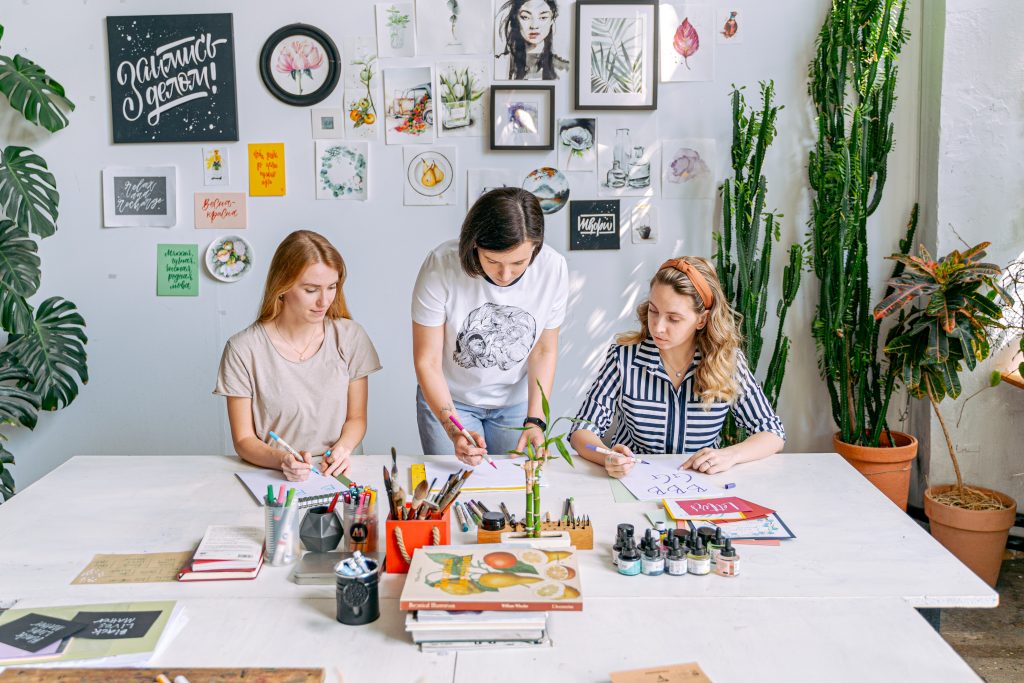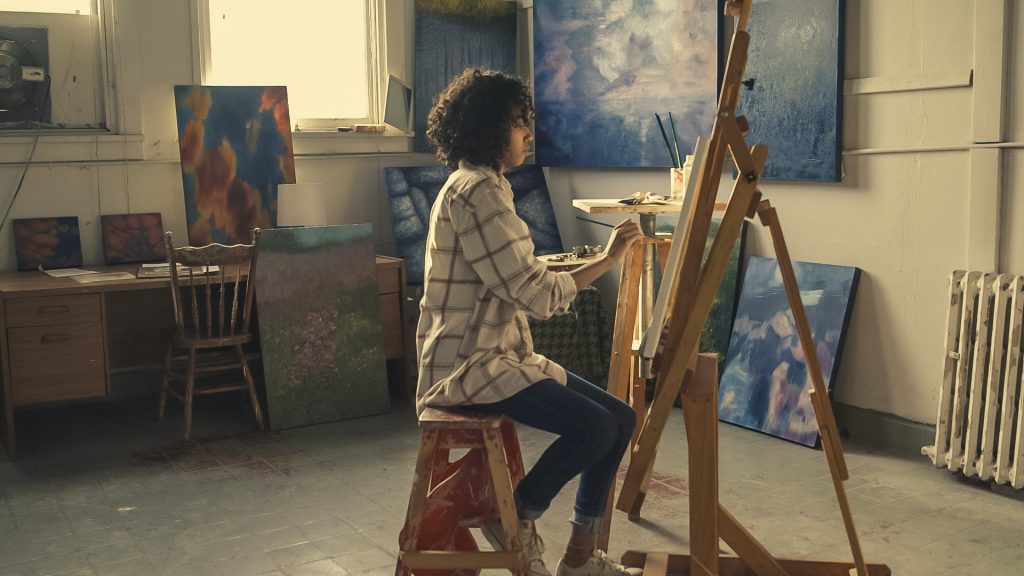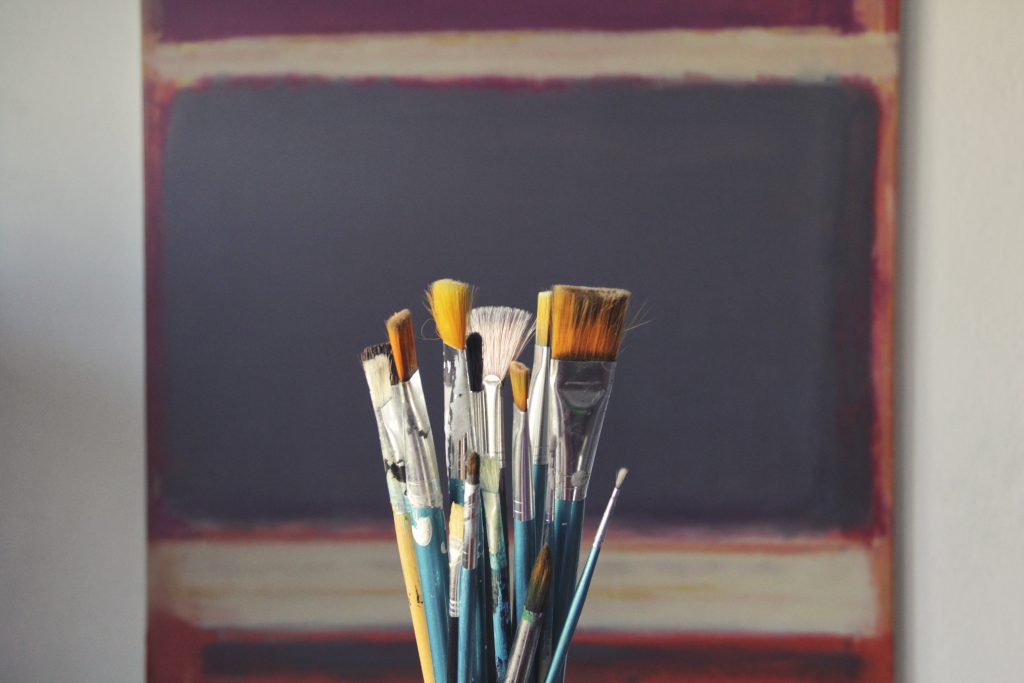Rumors and myths spread like wildfire regarding any profession out there. Those who love it will say only the most amazing things, and those with less favorable experiences will bash it any chance they get. It is no secret that artists have a certain reputation, and there is no shortage of myths about being a successful artist. Some say it is impossible to be a successful artist in today’s world. Others say you must be put on the map by someone famous, and the most pessimistic ones think that talent and quality have nothing to do with being successful as an artist. Let’s break down some of those myths and see them from a different perspective.
An Arts Degree Is a Waste of Time
Art students get this all the time, “What will you do with an arts degree?” or “You should get a degree in something practical and do arts in your free time.” For those who are passionate about what they do, it is truly frustrating to have to repeatedly defend their choices. An art degree can help you find jobs in various industries, and options are limitless. For instance, there is so much focus on media and content, and original and creative ideas are in high demand. It may seem like you will not be able to put your degree to good use or that you do not need it. However, that degree can open doors for artists in fields they never dreamed of and may inspire new career directions or advancement in what they were already passionate about. An art degree may lead to an artist discovering a passion for photography, illustration, animation, graphic design, curating, and teaching.

You Must Have an MFA from a Prestigious University
An elite university degree is a great thing to have; however, it is no guarantee of success. Whether you have an MFA from Stanford University or no degree at all, it’s the work that matters. In the art world, such credentials carry less weight than they would in professions such as law or medicine, for instance.
Many successful artists never went to art school, let alone acquired a degree from a high-ranking university. Take, for example, Frida Kahlo, who did not have a formal art education, or Basquiat, who even dropped out of high school.
Successful Artists Are Eccentric Loners
It is undoubtedly true that for artists to perfect their skills, they need to invest a lot of time and energy into practice. This will require quite a lot of isolation, lack of sleep, and lack of socializing. However, these periods come in waves and are not permanent. It also largely depends on the artist’s personal style. Some will dedicate specific times of the day to isolate, while others will take days and weeks and then take longer breaks between creating. Nevertheless, most artists will largely depend on their social interactions to learn about people, observe movement, and ultimately recharge for those more extended periods of isolation.

In addition to that, it is a well-known fact that networking is everything for artists. They need to be able to get the word out that they are creating and show their art to the right people. Historically, great artists stuck together, which gave them better opportunities. They would develop collectives, groups, and directions together—not as loners. Working in collectives offers artists the opportunity to receive invaluable feedback from their peers, allowing them to grow their craft and improve. Think of Manet and Monet, who were close friends and worked together; Schiele and Klimt as a student and mentor and later friends; and Vang Gogh and Gauguin, who spent long periods together and inspired and critiqued each other’s art.
You Are Successful Only If You Are Extraordinary
Let’s get something straight—being a successful artist does not exclusively mean you are in the ranks of Picasso and Gauguin. That’s like saying that if you are not as famous as Beyonce, you are not a successful singer. Producing art and making a living out of it constitutes tremendous success. This success can come in many forms and can lead to more growth, discovery, and means to improve your craft.
Art Cannot Be Taught—Artists Are Born
Without a doubt, having a knack and talent for art is extremely important. But becoming a successful artist takes a lot of hard work. Artists are not simply born with incredible talent and magically produce masterpieces without ever practicing the use of different tools and techniques. Think of Van Gogh and all the self-portraits he made. They came out of his grueling practice routine of trial and error and testing out all the different techniques. Every artist must invest hours upon hours of practice and repetition until they come into their own.

Being a Successful Artist Means Doing Nothing Else
For an artist to be successful, they need to be able to pay for classes, buy art supplies, and support themselves—these things do not come cheap. Before being able to live off their art, artists need to establish themselves, and this can be a life-long journey. Most artists have other occupations in addition to creating art, and if they are truly passionate about their craft, they will never quit.
Artists also take on various projects that may not seem conducive to their careers but can be greatly useful in the long run. Some of these jobs may be working in schools or doing volunteer work. An artist might help others express themselves and teach those who are underprivileged. They may also donate their work to charities which can, in turn, do wonders for their visibility and attract more opportunities for future work.
The Takeaway
There are many more common myths about being a successful artist, as there are with any profession that has such a large following and reputation. For those looking to become an artist or want to inspire their loved ones to become one—we hope our input managed to debunk some of those stereotypes.
_______________________________
Author’s Bio: Holly Whittle is a visual artist who loves blogging about her profession and helping others like herself. She worked at Excalibur Moving and Storage for several years, which immensely helped support her career in arts.


